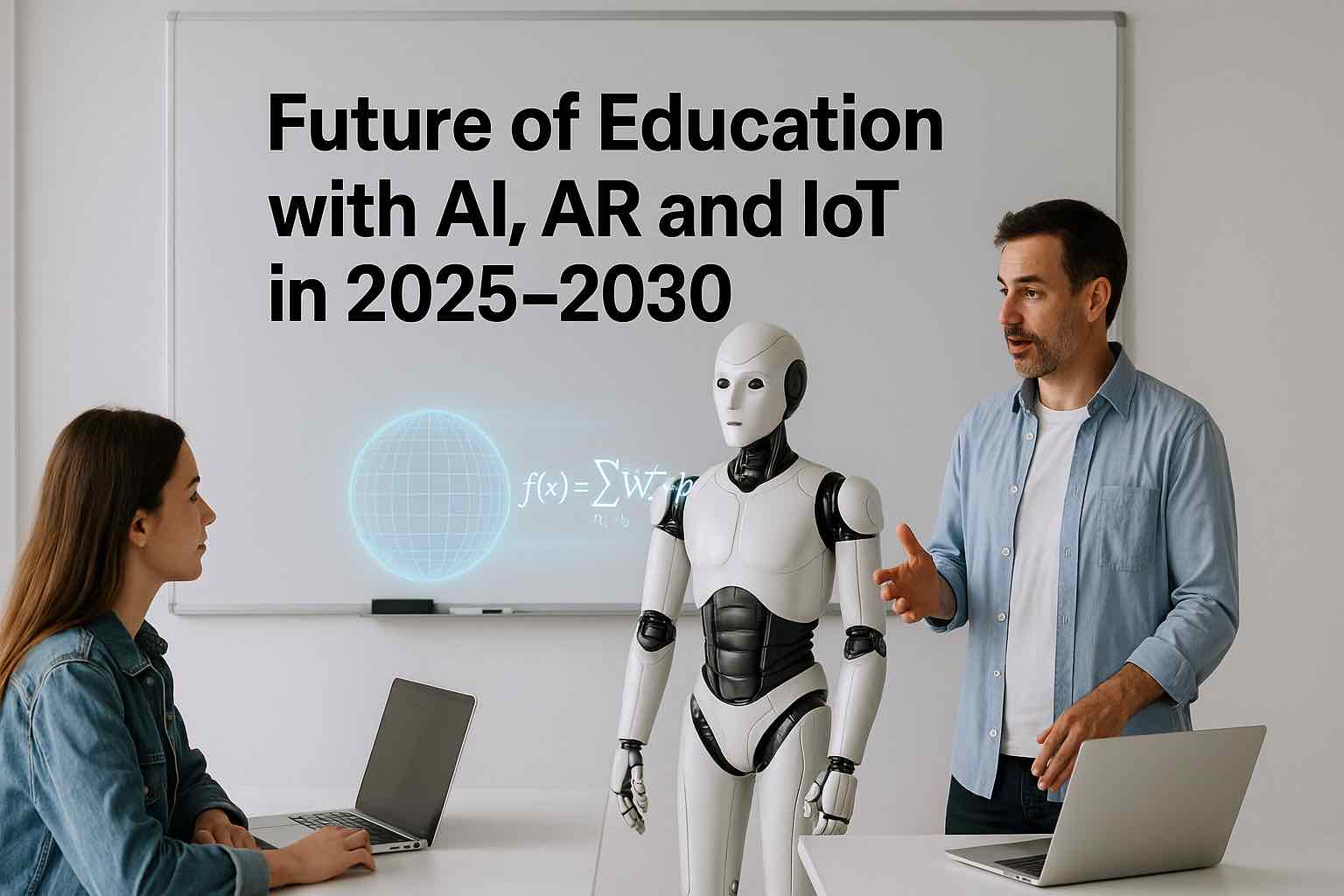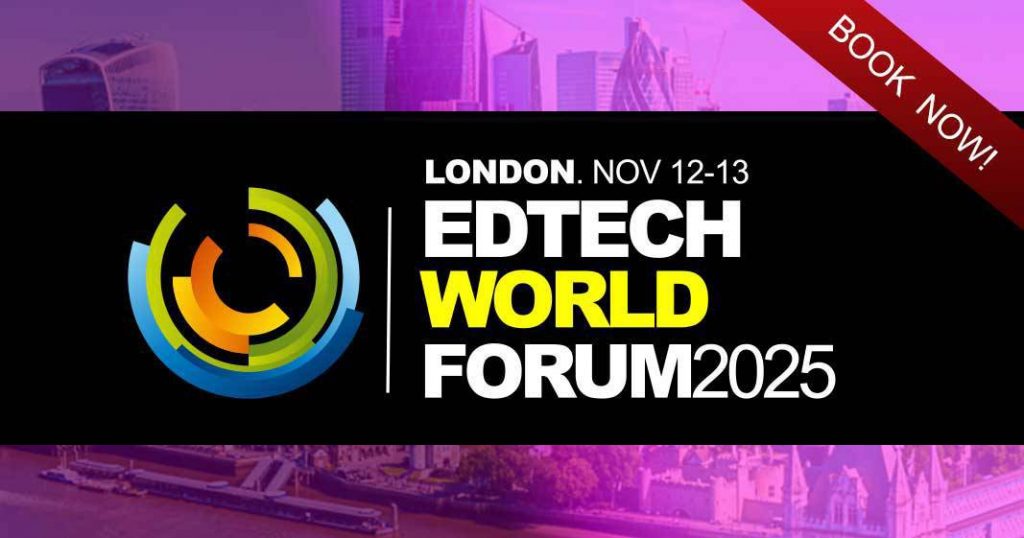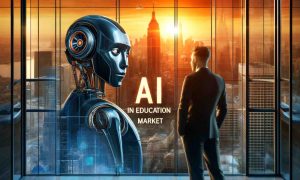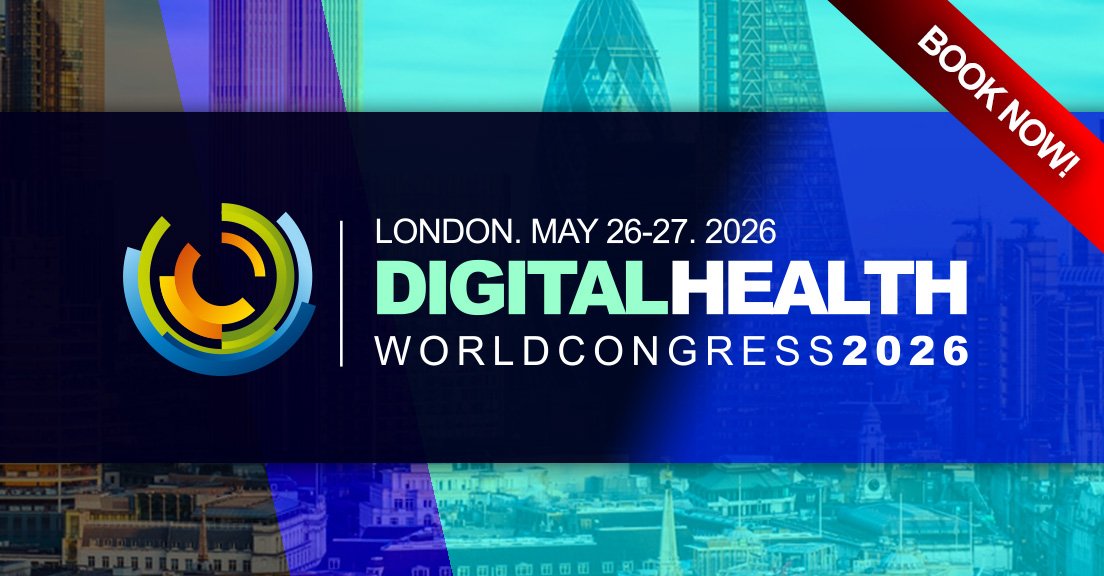
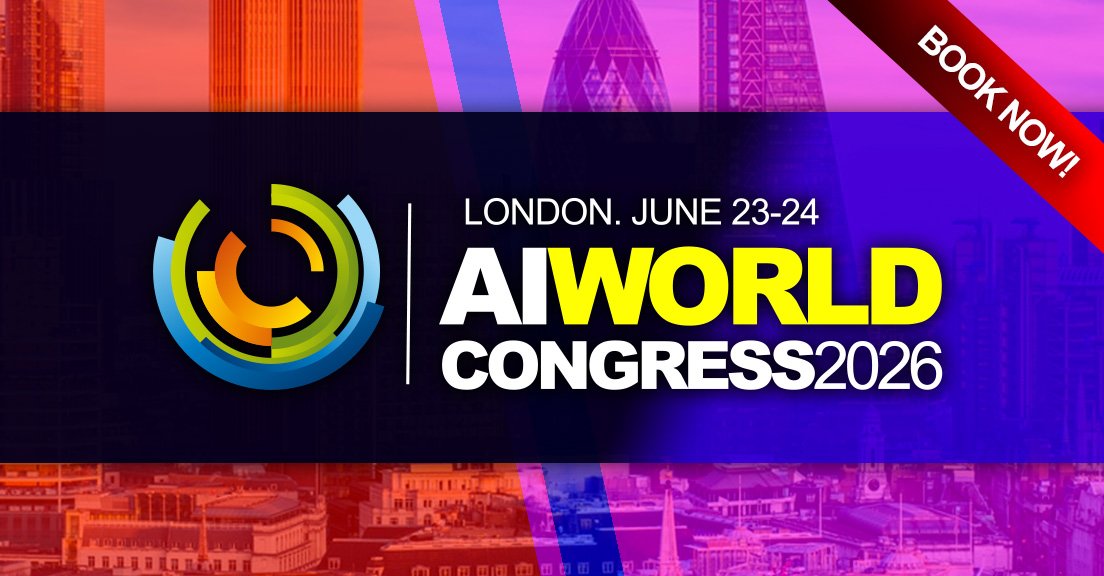
The next decade marks a revolutionary period for education. From 2025 to 2030, the integration of Artificial Intelligence (AI), Augmented Reality (AR), and the Internet of Things (IoT) is set to redefine learning environments, teaching roles, and student engagement across the globe. This article outlines key developments through real-world events, offering a timeline of transformation through bolded milestones, each supported by profiles and practical insight.
-
EDTECH WORLD FORUM 2025
The Rise of AI Tutors in Classrooms
📍 Location: Virtual (Global)
📅 Date: March 15–17, 2025
🔗 Event Link: Virtual AI Tutors Summit
AI-powered tutors emerged as one of the most impactful innovations in AI in Education. These intelligent assistants adapt content delivery based on real-time student feedback, allowing personalized instruction at scale. Students interact with AI systems that assess comprehension, offer instant feedback, and even detect emotional cues to optimize engagement.
The summit explored not just technological capabilities but also ethical dilemmas—bias in AI models, data privacy, and teacher displacement. The consensus was clear: human teachers remain central, and AI should serve as a co-pilot in delivering personalized, inclusive education.
Immersive Learning with AR‑Enhanced Classrooms
📍 Location: London, UK
📅 Date: June 10–12, 2025
🔗 Event Link: Global AR in Education Expo
At this edtech event, AR transformed passive learning into hands-on discovery. Students used AR glasses or mobile apps to conduct virtual lab experiments, explore 3D geometric shapes, or visit ancient civilizations without leaving the classroom.
Educators showcased how AR supports visual learners and deepens understanding of abstract concepts. Key sessions addressed curriculum integration, teacher training, and equitable access to ensure that immersive learning doesn’t become a luxury, but a standard.
Connected Classrooms: IoT‑Powered Learning Environments
📍 Location: New York City, USA
📅 Date: September 8–10, 2025
🔗 Event Link: IoT in School Infrastructure Summit
This event marked the global shift toward IoT-enhanced education. Smart sensors tracked air quality, light levels, and student presence—creating responsive environments that support learning. Wearables provided real-time data on student engagement and wellness, helping teachers adapt strategies instantly.
Discussion revolved around privacy, cost, and deployment. Schools that implemented IoT infrastructure reported improved focus, reduced absenteeism, and smarter use of energy and classroom space.
Synergy of AI, AR and IoT: The Smart Campus Framework
📍 Location: Singapore
📅 Date: February 20–22, 2026
🔗 Event Link: AI‑AR‑IoT Smart Campus Forum
Singapore’s Smart Campus Forum demonstrated what happens when Artificial Intelligence, AR, and IoT converge. AR overlays real-time lab instructions while IoT sensors relay data to AI, which provides feedback to both students and instructors.
This synergy enabled autonomous learning cycles, where technology acts as tutor, guide, and observer. The forum established benchmarks for building holistic smart campuses, emphasizing infrastructure, faculty training, and open data standards.
Global Policy and Ethics Summit on AI‑in‑Education
📍 Location: Paris, France
📅 Date: April 15–17, 2026
🔗 Event Link: Global Summit on AI in Education Ethics & Policy
As AI in Education gained traction, Paris hosted a summit to address its governance. Topics included data ownership, algorithmic transparency, and child rights in AI-driven systems.
The outcome: a multinational agreement on ethical use of AI in schools. Participating countries committed to auditing AI tools, enforcing equity policies, and empowering educators—not replacing them. It was a turning point in balancing innovation with accountability.
AR Field Trips: Beyond the Physical Classroom
📍 Location: San Francisco, USA
📅 Date: October 5–7, 2026
🔗 Event Link: AR Field Learning Conference
This conference highlighted AR’s ability to turn any environment into a learning space. Students walked through ancient cities, scaled volcanoes, or toured ecosystems via AR experiences layered over their real-world surroundings.
Panelists emphasized how these virtual field trips build empathy, context, and curiosity. With lower costs and higher scalability than physical trips, AR became a favorite among under-resourced schools looking to expand students’ horizons.
AI‑Driven Learning Analytics at Scale
📍 Location: Toronto, Canada
📅 Date: January 12–14, 2027
🔗 Event Link: Learning Analytics & Artificial Intelligence Summit
This event focused on using Artificial Intelligence to drive data-informed education. AI models sifted through attendance, behavior, grades, and participation to predict student success and recommend interventions.
Educators gained tools to identify learning gaps and implement just-in-time support. The challenge lay in balancing predictive accuracy with student agency and ethical use of behavioral data.
Personalized AR Projects: Student‑Led Innovation
📍 Location: Berlin, Germany
📅 Date: May 20–22, 2027
🔗 Event Link: Student‑Centric AR Project Fair
Shifting the spotlight to learners, this Berlin fair showcased student-created AR projects that tackled real classroom challenges. From history simulations to interactive poetry, students became designers of their own tools.
Workshops taught design thinking, AR development, and peer review. Empowering students as creators—not just consumers—promoted deeper understanding, ownership, and creativity in learning.
Smart Campus Certification Playbook Released
📍 Location: Online (Global)
📅 Date: December 1, 2027
🔗 Event Link: Smart Campus Certification Release Webinar
This global webinar unveiled the Smart Campus Certification Playbook, a blueprint for implementing AI, AR, and IoT across school systems. Developed by academic and industry leaders, the playbook standardized best practices for smart learning environments.
It included metrics on sustainability, equity, and data ethics, giving institutions a clear path toward transformative infrastructure while maintaining student-centered values.
Global Forum: The Future of Teaching in the AI‑AR‑IoT Era
📍 Location: Dubai, UAE
📅 Date: March 10–12, 2028
🔗 Event Link: Future Teaching Forum
This forward-looking forum reimagined the teacher’s role in a tech‑infused world. Teachers are no longer just content deliverers—they’re learning designers, facilitators, and data translators.
Workshops explored how educators can work alongside AI co‑teachers, use IoT feedback to drive instruction, and co-create experiences using AR. A strong emphasis was placed on empathy, ethics, and preserving the human connection in digital classrooms.
Holistic Vision: Education Transformed by 2030
📍 Location: Global
📅 Date: 2030 (ongoing)
🔗 Event Link: Future Education 2030 Whitepaper Release
The culmination of a decade of innovation was the Future Education 2030 Whitepaper, a global call to action. It outlined how Artificial Intelligence, AR, and IoT can work in harmony to deliver equity, accessibility, and excellence in education.
Governments and educational institutions began aligning to this vision, making 2030 the year education fully evolved into a networked, intelligent, and inclusive ecosystem.
Conclusion: From Tools to Transformation
From 2025 to 2030, education has not merely adopted new tools—it has undergone a paradigm shift. The integration of edtech through AI, AR, and IoT has redefined what, how, and where we learn. But beyond the flash of technology lies a deeper truth: the future of education is human-centered, adaptable, and designed to empower every learner.
Whether you’re a policymaker, educator, technologist, or student, the future is not coming—it’s already in session.
Bibliography:
Bet t Global. (2025). Bett Global 2025: Educational Technology Trade Exhibition, London. [online] ExCeL London. Available at: https://en.wikipedia.org/wiki/BETT [Accessed 6 Sep. 2025]. Wikipedia
MIT RAISE Initiative. (2025). MIT AI & Education Summit 2025. [online] Massachusetts Institute of Technology, July 16–18, 2025. Available at: URL from MIT RAISE (as referenced). MIT RAISE
Stanford HAI. (2025). Annual AI+Education Summit 2025: Human‑Centered AI for a Thriving Learning Ecosystem. [online] Stanford University, February 25, 2025. Available at: https://hai.stanford.edu/events/human-centered-ai-for-a-thriving-learning-ecosystem Stanford HAI
Global Talent Solution Hub. (2025). Global Education Conference & Expo 2025. [online] London, UK, July 4–6, 2025. Available at: https://www.facebook.com/globaltalentsolutionhub/posts/… (Global Education Conference & Expo 2025) Facebook
HolonIQ. (2025). 24th Annual ‘Back to School’ Summit, New York City. [online] September 9–11, 2025. Available at: https://www.holoniq.com/back-to-school-summit/… holoniq.com
OEB. (2025). OEB Global – 31st edition: Cross‑Sector Conference on Digital Learning. [online] Available at: https://oeb.global/conference OEB
EdTechTeacher. (2025). AI in EDU Summit: Inspiring Education through AI Innovation. [online] (Conference hosted at Bentley University). Available at: https://edtechteacher.org/aisummit/ edtechteacher.org
Key Details for Article References:
| Conference/Event | Location & Date | Relevant Focus |
|---|---|---|
| Bett Global | London, January 2025 | Leading edtech expo showcasing AI, AR, digital learning trends Wikipedia |
| MIT AI & Education Summit | MIT, July 16–18, 2025 | Emphasis on AI literacy and personalized learning MIT RAISE |
| Stanford AI+Education Summit | Stanford, February 25, 2025 | Focus on human-centered AI in learning ecosystems Stanford HAI |
| Global Education Conference & Expo | London, July 4–6, 2025 | Broad education and technology innovations Facebook |
| Back to School Summit | NYC, September 9–11, 2025 | Policy, AI developments, higher education transformation holoniq.com |
| OEB Global | (Online/Various), ongoing in 2025 | Cross-sector dialogues on edtech and digital learning OEB |
| AI in EDU Summit | (Hosted by EdTechTeacher), 2025 | Educational leaders exploring AI implementation strategies edtechteacher.org |


